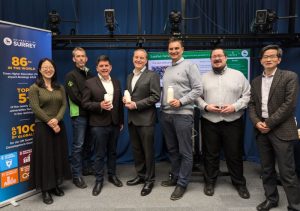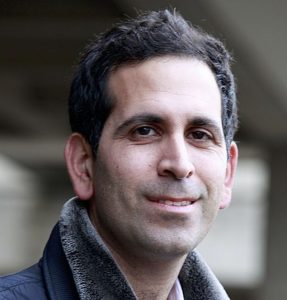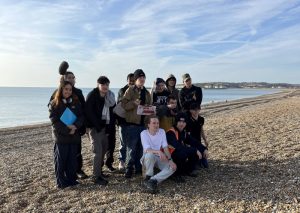A Surrey suburb is up in arms as an ‘oustanding’ secondary school could change its admissions, making it more tricky for local children to get a place.
Consultation for the new admissions for September 2025 at Hinchley Wood School, in Esher, ends on Wednesday 22 January. If approved, the academy school would prioritise students who attend the schools within its own trust- Hinchley Wood Primary School and Thames Ditton Junior School- leaving Long Ditton St Mary’s Junior School and Claygate Primary School lower down the pecking order.
But parents of Long Ditton St Mary’s Junior are furious their child could lose a place at the only local state school in the area. Children who attend Long Ditton St Mary’s Junior School have traditionally gone to Hinchley Wood Secondary School, but the admission changes could see local students deprioritised from their closest high school and forced to go elsewhere.
The ‘outstanding’ Ofsted-rated school frequently comes as one of the top places in Surrey. Ben Bartlett, CEO of Hinchley Wood Learning Partnership Trust, said he had “massive sympathy” for those worried about the proposed changes and understood parents always want their child to get into the “best” school.
An academy trust, Hinchley Wood School is legally and financially one organisation so it shares resources such as safeguarding, SEND provision, disadvantaged learners and educational subjects like French, Music and P.E with trust schools. Mr Bartlett argued giving the two primary schools priority keeps children and their parents “in the Hinchley Wood [trust] family”.
Mr Bartlett and Co-Headteacher Ms Maria Cachia explained keeping students in the trust means any safeguarding information or education can be easily transferred as schools have “shared values and strategic aims”.
Now, parents say they are having to decide whether to send their children to the Ofsted-rated ‘good’ Thames Ditton primary school to have a better chance of going to Hinchley Wood, or to send them to the ‘outstanding’ Long Ditton St Mary’s Junior. One dad said it was like “you’ve got a gun to your head from the local state school”.
Shaya’s son goes to Thames Ditton Infant School. He said his family has been “torturing ourselves for eight months” to decide which junior school to send him to in the hopes of getting a good secondary school place which could have a “profound impact” on his longterm future. Shaya said: “We’re being forced to choose whether to prioritise our son’s immediate educational means at the sacrifice of his long-term education.”
Shaya, who lives less than 1km away from the secondary school, said: “The withdrawal of the catchment area clearly demonstrates the Trust wants to prioritise children who do not live locally over local children, and its own financial health.” But the senior leadership at Hinchley Wood argued it would not be fair for children attending a primary school within the Trust to not proceed to the secondary school just because they live out of the catchment area.
Antony Warren, parent of two children at Long Ditton St Mary’s Infant School, said it is “wholly unfair” for the academy to change its admissions suddenly. He said: “We moved, we invested significant life savings into our house and in the community as a whole [so] we knew we were in the catchment area.”
If children do not get accepted into Hinchley Wood Secondary, the next nearest school could be in Kingston where the council has no obligation to accept Surrey pupils. While the Long Ditton students could walk down the road to the secondary school, they may have to get the bus for 30-45 minutes to Esher High or a Kingston school. “I pay my taxes,” said Antony, “I feel my children deserve the right to go to their local state school.”
For many of the young children their first years of education were riddled with Covid and lockdowns, leading to disrupted education and interrupted friendships. Some children now struggle with anxiety and stress, which many parents fear will be exacerbated if the kids start new secondary schools out of the local area where they will not know anyone.
A tight and close-knit community, parents said the Dittons and Hinchley Wood are entangled together with sports teams and extracurricular groups. Preventing children from going to the local secondary school fractures these ties and uproots them from their social connections.
“It’s just not right that a multi-academy trust can just wield its power and prioritise their own schools for their own benefits for their own financial gains [and] totally disregarding the needs of the local community,” said Annette Whymark, who has a son in Year 4. Annette and her husband James Whymark started the action group to spread the word in the Thames Ditton community.
The campaign group, made up of around 65 parents, feared changing the admissions could disperse children into Surrey and Kingston, causing a ripple effect on school admissions. Parents understood those at Hinchley Wood and Thames Ditton primary schools will be in favour of the admissions change because “they want to do what is best for their children”. However, they emphasised it as “grossly unfair”.
Some argued that the Hinchley Wood’s consultation is “financially driven” because it prioritises the primary schools within their trust by encouraging parents to send their children to that school. By increasing the pupil number, the school will get more funding from the government.
Mr Bartlett disagreed the consultation was motivated by financial gain, and stressed the student admission number for the two primary schools was actually being lowered in line with a falling birth rate.
Based on school admission data from Surrey County Council, Mr Bartlett and Mrs Hogan told the LDRS there would be a “minimal” impact in the number of students from Long Ditton entering the school. The CEO said the area was “blessed with a spread of fantastic schools” from Esher to Kingston, where children can frequently get local buses to school.
“This is a genuine consultation and no decision has been made yet,” said Mr Bartlett. After the consultation finishes, the responses will be read and considered by the governors and trustees for the school.
Monica Harding MP for Esher and Walton, said she was concerned about the impact of the proposed admission changes and has shared these with Ben Bartlett. She said: “I have urged HWS to explore alternatives that better serve local families. I will continue to speak with the leadership at HWS on this issue.
“I have also raised these issues in both meetings and written correspondence with the DfE and Surrey CC. The DfE assured me that they are taking these concerns seriously and will “monitor and work with the trust and Surrey County Council to ensure no schools are made vulnerable by such changes if they occur.”
“I am very aware of the anxiety these proposals are causing parents, and I remain committed to advocating for solutions that keep the best interests of our children at the forefront and ensure all of our local schools are thriving. I encourage all parents to participate in the consultation process to help ensure the final decision reflects the needs of our community.”
“I also recognise that local schools are facing huge financial strain and that they are all challenged to deliver high-quality education without commensurate funding. I will continue to push the Government hard to provide the resources necessary for our children to have the best possible education.”
Campaigners outside Long Ditton Infant school. (Credit: Emma Pericas Sims)











